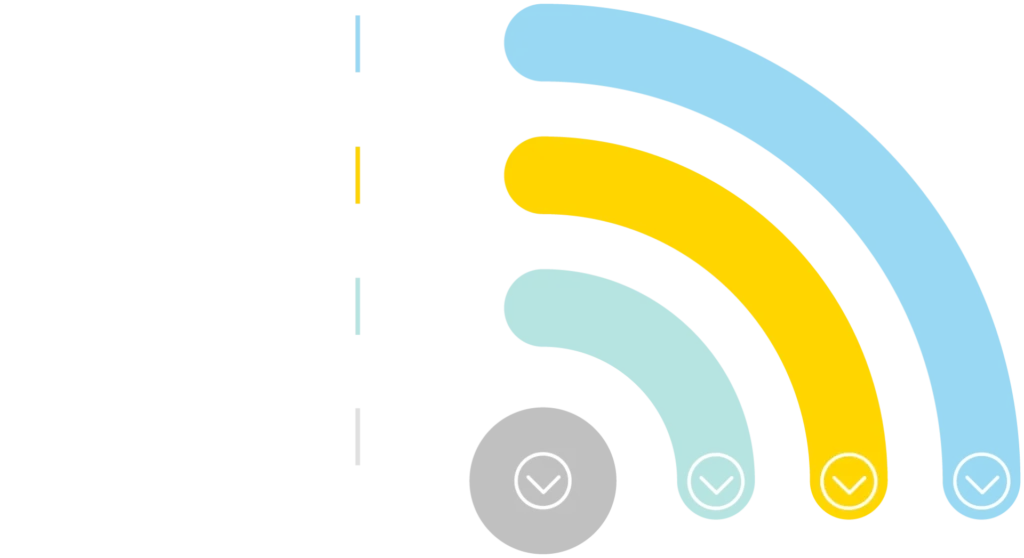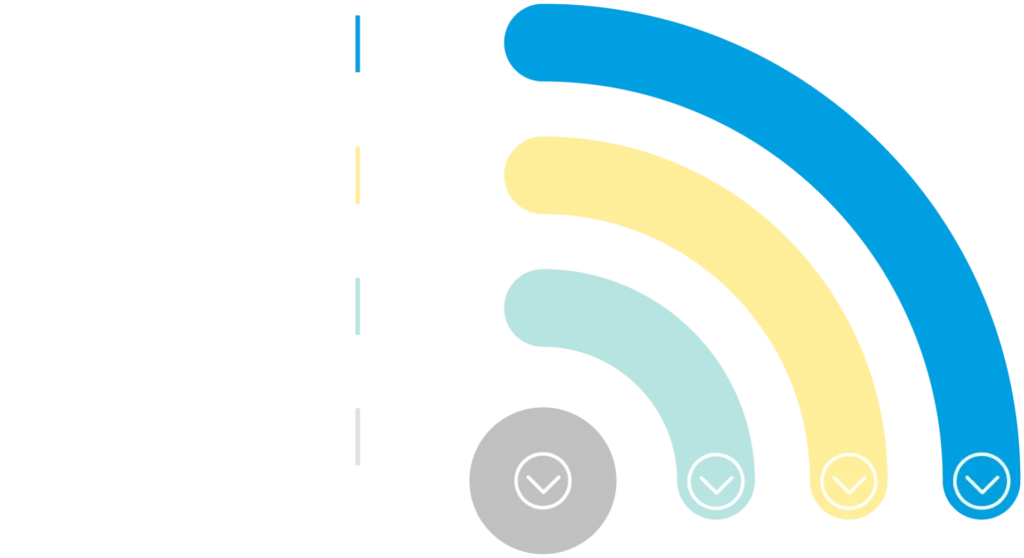Best Practice in Ethical Operations
Three interdependent frameworks guide the orchestration of live operations through EDGE, our Intelligent Collections Operating System.
Combined, they form the essential guardrails that ensure efficient, effective and safe distribution of operational intelligence, in a manner that reflects the best interests of our customers and clients. These frameworks are configurable and can be adjusted by clients to reflect their individual requirements.
Fairness
Framework
Embeds fair treatment of customers and clients within every aspect of the business.
Design Intelligence Framework
Transforms data into reports, insights and intelligence, used to guide and adjust the optimal collection strategies for each customer.
Artificial Intelligence Framework
Supports the effective distribution of intelligence and builds incremental advantage through continuous learning.
Fairness Framework
Our core value is our belief that everyone is entitled to fair treatment.
CDER is the pioneer of the industry’s gold standard ‘Fairness Framework’ and ‘Fairness Charter’ which define, at a deep operational level, the principles, practices, measures and outcomes that ensure fair treatment occurs at every level of the organisation and in every engagement and interaction with customers, clients and employees.
3 principles + 3 practices = 1 outcome: Debt Fairly Collected
Our commitment to fair treatment isn't just talk – it's proven.
Year after year, we’ve earned independent recognition through awards, reviews, and accreditations for outstanding customer service.
In 2024, our Customer Service Excellence accreditation validated our company-wide approach to fair treatment, awarding us 10 “Compliance Plus” scores for exceeding expectations across all four areas of assessment.

Decision Intelligence Framework
Transforming data into actionable insight and intelligence
Our decision intelligence framework describes how data is transformed into actionable insight and intelligence, which automatically guides and adjusts optimal collection strategies, orchestrated through our intelligent operations system ‘EDGE’
Specialised models and decision engines drive optimisation across all operating processes that drive resolution including propensity to pay, behavioural analysis and communication style, type and frequency.

Effective decision making across a wide range of customer debt scenarios
We collect, process, cluster and segment trusted customer and operating data in a way that makes it useful and valuable for effective decision making. Rich, well-structured relational data help us to build a powerful single customer view that places the person at the heart of the process.
Drawing insight from an indicative cohort of tens of millions of customer engagements, our set of identifying structures and processes and practical and fair adjustments enable us to accurately assess and predict behaviours and preferences of people, based on their individual circumstances.
Our advanced analytic models allow us to identify and differentiate our approach, for example between those customers who cannot pay their debt due to vulnerability or hardship; and those who are in a position to pay their debt but may need time and support to do so; and those who have the means to pay their debt, but choose not to.
The resulting decision intelligence guides optimised fluid engagement through EDGE, selecting the workflows and triggering the mid-flight adjustments that are most likely to drive resolution and future compliance for each customer –for example, by offering a flexible, affordable and sustainable payment plan.

Artificial Intelligence Framework
Our platform employs an AI framework comprising three categories of capability which are used to build the architecture that distributes intelligence: Workflow, Schedulers & Listeners. New capability can be bolted in via a secure and well defined methodology.
Workflow
Software-based workflow ‘agents’ trigger events such as appointments or communications. The agents access the event context and case data, performing intelligent routing decisions appropriate to the customer.
Schedulers
Schedulers are robotically-coded activities that take place according to a pre-defined schedule. They have no requirement for real-time interaction, and examples including the efficient import or export of batches of data.
Listeners
‘Listeners’ form the basis of deeper intelligence, by ‘listening’ for changes, such as when a payment occurs and reacting to the change by triggering appropriate updates to case balances, workflows and communications.
Together these functions manage the distribution of intelligence so that operations are consistently orchestrated in the most effective, fair and efficient way for every customer engagement, regardless of scale or volume.
In turn, every event and interaction generates new data that is continuously recorded, analysed and fed back into a large growing repository of data. This refines our models, guides our actions and forms the basis of an deeply valuable debt intelligence advantage.




